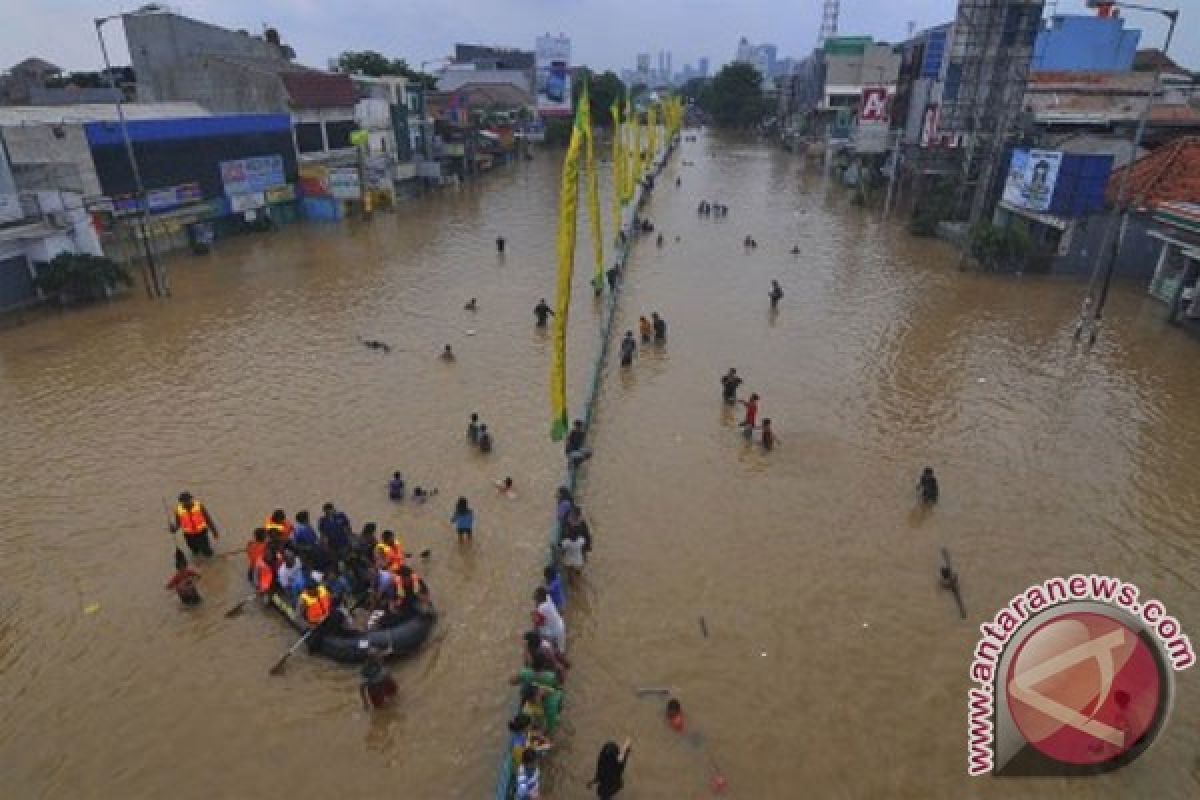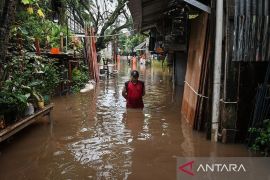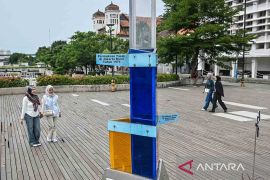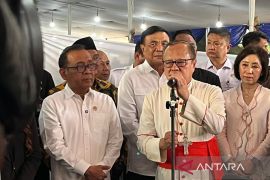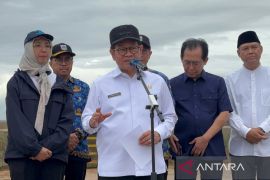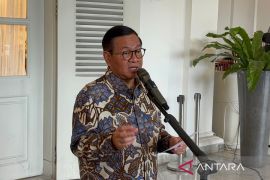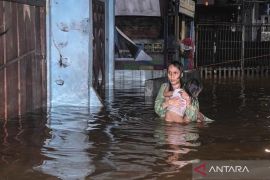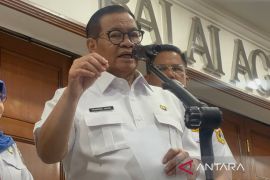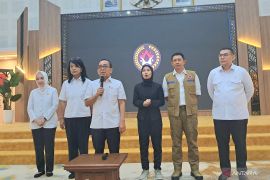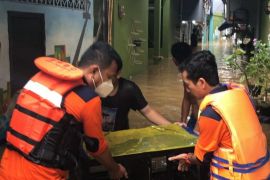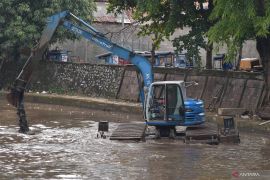So far, various efforts have been made to overcome the problem of perennial flooding in the Indonesian capital of Jakarta, but the disaster continues unabated.
"It has taken a lot of time to address the flood problem in Jakarta. Working swiftly and staying focused is of prime importance now," Jakarta Governor Joko Widodo, better known as Jokowi, stated, while inspecting the Pluit City Park Reservoir in Penjaringan, North Jakarta, on Monday.
Jokowi noted that he did not want to be distracted by other affairs and wants to focus his attention mainly on the flood mitigation program in Jakarta, through the normalization of the rivers and water reservoirs.
"Normalization of the rivers and reservoirs is still not complete. Therefore, we should continue to work on it," Jokowi reported, adding that an integrated partnership between the local and central governments is crucial to overcome Jakartas flooding problem.
"Flood mitigation is not only the sole responsibility of the provincial administration but the central government also needs to be involved in this endeavor. There are 13 major and small rivers, in addition to 884 small channels. It will take a long time to put the flood management program in place," claimed Jokowi.
He pointed out that the provincial administration continues to dredge the reservoirs and rivers using heavy equipment.
"It is important that the public understands their role and avoid littering at all costs. Without the efforts of the public, flood mitigation efforts will be futile," he explained.
According to Jokowi, Jakartas floods also arise due to excess water emanating from other areas such as Bogor. So, the residents in this area should avoid recklessly cutting down trees.
"I appreciate the efforts taken by the local government of Bogor which is demolishing villas to make room for green spaces and better water uptake," he added.
Jokowi pointed out that the problem of flooding in Jakarta is a complex issue but can be resolved with focused efforts and partnership among all concerned parties.
Floods triggered by torrential rains on Sunday and Monday, forced 1,545 people to flee their houses in Jakarta and take shelter in refugee camps.
"The flood waters have risen up to two meters in some areas, following incessant rains in the last two days," the Regional Disaster Control Agency (BPBD) spokesman Bambang Surya Saputra reported here on Monday.
Based on the agencys flood impact data, the floods inundated around 7,367 houses affecting 24,269 people in Jakarta, and at least 5,125 evacuees were accommodated in 35 shelters across the capital.
The height of flood waters varied in several places. The flood waters reportedly rose four meters in the Cawang sub-district, Kramat Jati, East Jakarta.
The four worst affected areas in East Jakarta are Cawang, Cililitan, Bidara China, and Kampung Melayu.
In Kampung Melayu, East Jakarta, at least 1,508 homes were inundated with floods, forcing 212 out of the 3,427 residents to evacuate.
"Most of the residents do not want to evacuate despite the floods reaching 100-250 cm," Sutopo noted.
While in Cawang, Kramat Jati, East Jakarta, the flood water reached 50-400 cm, inundating a total of 1,944 homes with 6,293 inhabitants and displacing at least 3,446 people from their homes.
On Monday, former Jakarta Governor Sutiyoso stated in Semarang, Central Java, that it was necessary to address the problem of flooding in Jakarta by working on the upstream and downstream areas.
"It is not easy to overcome the problem of floods in Jakarta overnight. Therefore, efforts must be made from the downstream to upstream, in order to completely address the problem," Sutiyoso noted.
According to him, the floods inundating the capital city were mostly due to the excess water received from the south, and therefore, an integrated management program with the government of Jakarta is necessary.
Sutiyoso admitted that when he was the governor of Jakarta, he proposed a megapolitan management concept for an integrated solution to the floods, but it was not taken seriously by the central government.
When asked to comment on the suggestion about relocating the capital city to some other location, he stated that it will not resolve the flood problem.
"I dont think relocation of the capital city will solve the flood problem in Jakarta," the former Jakarta governor claimed.
In December 2013, South Kalimantan Provincial Legislative Assembly (DPRD) Chairman Nasib Alamsyah stated that Jakarta should remain the capital city of Indonesia.
"Relocation of the capital city to another island in Indonesia will not necessarily solve Jakartas problems," he answered to a comment made at a seminar held in Jakarta to discuss the relocation of the capital city to the Kalimantan Island.
The DPRD chairman proposed relocating some of the government activities and ministries in Jakarta to other islands across the country such as the Ministry of Marine Affairs and Fisheries and the Energy and Mineral Resources Ministry.
"The ministries of Finance, Religious Affairs, Defense and Security, the National Police, and Presidential Palace will continue to remain in Jakarta. Provinces with ministries will benefit from a faster pace of development," he claimed.
The Golkar Party politician stated that further discussions were necessary on the relocation of the capital to another place outside Java islands.
"We definitely do not want to give the impression that by relocating the states capital, we are shifting the problems from Jakarta to another city," he noted.
EDITED BY INE
(O001/KR-BSR/H-YH)
Reporter: Otniel Tamindael
Editor: Jafar M Sidik
Copyright © ANTARA 2014
